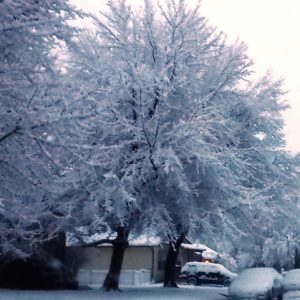When our air is dry, windy or warm, with little to no precipitation, and low soil moisture and our area is known for temperature fluctuation it is time to really consider fall/winter watering. This is after your supplemental irrigation system has been winterized for the down season. We recommend fall/winter watering roughly November to March.
Trees and shrubs, and it depends on the species and the variety in the landscape, can be very susceptible to drought stress-especially for new/newer plant material, but also it predisposes all plant material to freeze injury/damage. It also damages the roots system. Majority of the feeder roots (roots the uptake the water and nutrients for the tree) are within the first 4-12 inches of soil. Freeze events that damage our urban landscapes can occur within a 12-36 hour period. These are the most injurious events and can be life determining and detrimental to a plant. Smaller plantings can be protected with burlap or frost freeze cloths, but what do you do with an 80’ American Elm or a 35’ Autumn Purple Ash? Our small to large trees and shrubs are impossible to cover. Best Management Practices are to ensure adequate watering and insect and disease management.

 It’s Cold and Dry and I am so Thirsty!
It’s Cold and Dry and I am so Thirsty!